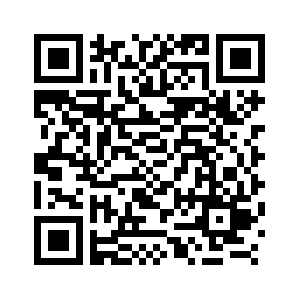BEIJING, April 10 (Xinhua) -- As China works to send more taikonauts on long-term missions in space, ensuring their well-being has become a matter of public concern. The cutting-edge devices aboard the Tiangong Space Station have proved to be invaluable tools in maintaining the safety and health of the these taikonauts in a zero-gravity environment.
The China Manned Space Agency has recently unveiled fascinating footage of a taikonaut crew engaging in rigorous workouts in space to mitigate the physiological impacts of prolonged exposure to microgravity.
The agency said that taikonauts in orbit need one to two hours of exercise daily to counteract the effects of microgravity, which include muscle loss, abnormal heart rates and immune system disorders. The three-module space station has fitness areas stocked with various equipment, including rowing machines, treadmills and resistance devices, so that taikonauts can stay fit.
The crew members in orbit were also seen wearing specially designed uniforms equipped with elastic resistance bands that enable them to experience elastic force, inducing muscle tension and counteracting the detrimental effects of a weightless environment on muscle.
During spaceflight, medical staff on the ground can continuously monitor the body temperature, blood pressure, heart rate and other physiological indicators of any taikonaut in orbit in real-time, and they maintain regular communication.
During the Shenzhou-11 mission in 2016, China tested its first space-Earth telemedical consultation system. The orbiting taikonauts transmitted their physiological data from the spaceship, allowing doctors on Earth to provide diagnoses and prescriptions, which were subsequently returned to the crew in space.
The Chinese "space home" also features an onboard clinic for its residents, providing various devices that monitor vital signs regularly. Additionally, the clinic is able to track organ functions and offer emergency first aid and trauma medical supplies, according to the space agency.
Available devices include cardiopulmonary resuscitators and ultrasound machines, and they are designed to be more compact than normal to save space aboard the orbiting station.
The real-time data of taikonauts is accessible thanks to wearable monitoring equipment. Even if a spacecraft enters the blackout zone -- a zone that a spacecraft passes through when it re-enters the Earth's atmosphere at high speeds, where communication with the ground is interrupted -- the equipment on taikonauts' suits can store their data for future analysis by ground personnel.
The Tiangong Space Station also offers a unique service in space that is not available to their peers aboard the International Space Station: traditional Chinese medicine (TCM) treatment. In their latest video update, the Shenzhou-17 taikonauts can be seen using a TCM diagnostic instrument to test their health. And in 2022, the Shenzhou-13 crew was spotted receiving acupuncture in zero gravity, garnering millions of views on social media. ■



